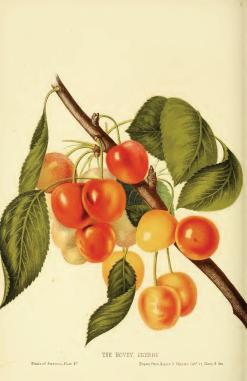
I’m working my way, slowly, toward talking about a particularly strange argument that appears in David Hume’s Dialogues Concerning Natural Religion (1779), which bears on the age of the world. In part 1, I explained that the argument occurs in the course of a response in part VI of the Dialogues by the character Cleanthes (whose argument from design rests on the analogy between the world and a machine) to his critic Philo’s objection that the world is as much like an animal as it is like a machine.
Cleanthes claims, for reasons that are obscure, that the idea that the world is like an animal implies that the world is eternal, and that, he insists, is “a principle which, I think, can be refuted by the strongest reasons and probabilities.” He is dubious about the argument (endorsed by no less a figure than Isaac Newton) from “the late origin of arts and sciences,” but he thinks that he can improve on it. “[H]ere appears to be the foundation of a better argument,” he commences:
LUCULLUS was the first that brought cherry-trees from ASIA to EUROPE; though that tree thrives so well in many EUROPEAN climates, that it grows in the woods without any culture. Is it possible, that, throughout a whole eternity, no EUROPEAN had ever passed into ASIA, and thought of transplanting so delicious a fruit into his own country? Or if the tree was once transplanted and propagated, how could it ever afterward, how could it ever afterwards perish? Empires may rise and fall; liberty and slavery succeed alternately; ignorance and knowledge give place to each other; but the cherry-tree will still remain in the woods of GREECE, SPAIN and ITALY, and will never be affected by the revolutions of human society. (emphasis in original)
Hume is relying on Pliny here. In what I have to admire as a tour de force of misguided pedantry, the reviewer of the Dialogues in The Critical Review (1779) noted, “The whole force of Mr. Hume’s argument depends on the truth of the fact. Servius, however, tells us, that there were cherries in Italy before the time of Lucullus…They were well-known to the Greeks many ages before the Mithridatic war [Lucullus was a successful general in the Third Mithridatic War, 73–63 BCE] … This argument, therefore, amounts to nothing.”
Ignoring the details of exactly when cherries arrived in Europe, the argument is clear. There have been innovations in horticulture within the historical record. But if the world were eternal, those innovations would have been arrived at earlier. And, unlike innovations in the arts and sciences, which once attained might nevertheless be forgotten due to “the revolutions of human society,” innovations in horticulture—like the cherry, nutritious and delicious as it is—are secure.
Cleanthes expands on the theme. Citing the historic introduction of horses, cows, sheep, swine, dogs, and “corn” (not maize!) to America, he asks, “Is it possible, that, during the revolutions of a whole eternity, there never arose a COLUMBUS, who might open the communication between EUROPE and that continent?” (emphasis in original) and answers, in pre-elastic style, “We may as well imagine, that all men would wear stockings for ten thousand years, and never have the sense to think of garters to tie them.”
Thus Cleanthes triumphantly concludes, “All these seem convincing proofs of the youth, or rather infancy, of the world; as being founded on the operation of principles more constant and steady than those by which human society is governed and directed. Nothing less than a total convulsion of the elements will ever destroy all the EUROPEAN animals and vegetables which are now to be found in the Western world” (emphasis in original). Talk about giving a hostage to fortune!
“And what argument have you against such convulsions?” Philo replies. “Strong and almost incontestable proofs may be traced over the whole earth, that every part of this globe has continued for many ages entirely covered with water.” I’m not positive what is intended. Hume was neither particularly interested in nor conversant with geology in general. Probably he is not referring to the Neptunist geology of Abraham Gottlob Werner; Werner’s major work wasn’t translated into English till after Hume’s death.
Anyhow, Philo’s point is general, not dependent on any specific convulsions. He proceeds to explain that there’s no reason not to think, on the assumption that the world is eternal, that matter is not “susceptible of many and great revolutions, through the endless periods of eternal duration.” This succeeds as a rebuttal of Cleanthes’s argument, especially because Cleanthes is not afforded the opportunity to reply, and indeed is silent until the very end of part VII of the Dialogues.
(Unremarked in the Dialogues is a further problem with the argument. If the eternity of the world is incompatible with Lucullus’s bringing the first cherry tree to Europe in the first century BCE, then it’s incompatible with his doing so at any time: the exact date is irrelevant. But that means that the argument presupposes the principle that the eternity of the world is incompatible with the occurrence of any innovation, and there seems to be no reason to accept such a principle.)
It wasn’t long after the publication of the Dialogues in 1779, three years after Hume’s death in 1776, that the debate departed the philosophical for the geological. Whether or not they met in person—they might have, but there’s no apparent evidence—Hume seems to have influenced his fellow Scot James Hutton (1726–1797). And in 1785, Hutton launched his ideas about the cyclical processes that form and reform the earth over deep time, leaving, in his famous phrase, “no vestige of a beginning—no prospect of an end.”

